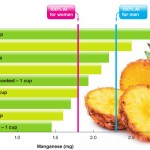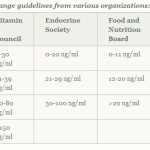
Ever wondered how tomatoes get their red color? It’s due to an antioxidant cartenoid pigment called lycopene. Why does lycopene matter? And most importantly, why should you care? Lycopene has many healthy benefits and is essentially an antioxidant powerhouse. It functions by maintaining the strength, thickness, and fluidity of the cellular membrane [1]. The cell membrane is responsible for determining what gets in and out of the cell—allowing good nutrients to enter while removing cellular waste. As a natural byproduct of our metabolic processes, oxidative damage from free radicals can damage the cell membrane and, consequently, our genetic material—DNA. And this could lead to aging, mutations or chronic illnesses. Therefore, it is important to maintain healthy and strong cellular membranes with the help of lycopene.
Dr. Leticia Rao from the University of Toronto explains that lycopene counteracts the free radical disturbance in the balance of new bone formation with bone loss as people age [2]. The elderly, who are especially concerned with brittle bones or osteoporosis (when bone loss exceeds bone formation), should make sure they have plenty of lycopene in their diet.
Not only does lycopene act as an antioxidant by quenching free radicals and preventing cellular damage that advocates aging and cancer, but it also seems to be reducing the risk of stroke! Recent studies show that lycopene is linked to a possible 55% reduction in men stroke risk [3]. It’s suggested that lycopene may help reduce ischemic strokes, the most common type of stroke. Ischemic strokes occur when clots form that obstruct the blood flow to the brain. When lipid peroxidation (oxidative degradation of fat) occurs in the bloodstream, the body’s immune and inflammatory responses get triggered, releasing macrophage white blood cells to relieve the oxidative stress and, ultimately, causing a blockage of blood vessels. This inflammatory response that clots the artery walls as a result of a sudden accumulation of white blood cells is also known as atherosclerosis. So by reducing inflammation caused by lipid peroxidation in the bloodstream, lycopene minimizes clot formation that restricts oxygen-rich blood flow to the heart, brain, and other important organs of the body. And this can lower the risk of cardiovascular diseases.
There is also evidence that suggests lycopene inhibits HMG-CoA reductase, an enzyme that produces cholesterol [4]. This means that lycopene can help lower blood cholesterol levels as well. And because lycopene levels are more concentrated in the male reproductive system, it helps protect men from the high frequency of prostate cancer [4]. But most importantly, studies have shown that low blood levels of carotenoids were found to be a predictor of earlier death while very low blood lycopene was the strongest predictor of mortality [4]. Thus, getting your daily dose of lycopene is important for a healthy lifestyle! And because lycopene is fat soluble, it is better absorbed in the body when it’s combined with some fat. Therefore, the lycopene and the omega-3 fish oil in the Balanced Trio Mid-Day Formula is an easy way to get the maximum benefits of this powerful antioxidant powerhouse.
References:
[1] Health Benefits of Lycopene
http://www.fitday.com/fitness-articles/nutrition/healthy-eating/health-benefits-of-lycopene.html#b
[2] Lycopene Benefits
http://www.lycopene.com/why-lycopene/lycopene-benefits/
[3] Lycopene-rich Tomatoes Linked to Lower Stroke Risk
http://www.health.harvard.edu/blog/lycopene-rich-tomatoes-linked-to-lower-stroke-risk-201210105400
[4] You Say Tomato—We Say Lycopene, a Protective Carotenoid
https://www.drfuhrman.com/library/tomatoes_protect_against_heart_attack_stroke.aspx
You May Also Like:
Latest posts by Wendy Chen (see all)
- Lycopene: An Antioxidant Powerhouse - June 28, 2015






